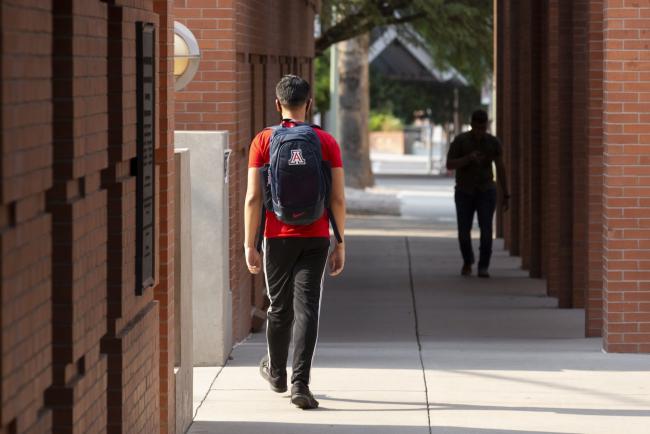(Bloomberg) -- Fewer students are opting to attend college in the U.S., deterred by Covid-19 risk and the prospect of taking classes online.
Undergraduate enrollments dropped 2.5% for the current academic year, according data released by the National Student Clearinghouse Research Center. The steepest decline was among international students, with non-resident alien undergrads down 11.2%.
Higher education in the U.S. has been hard hit by the economic fallout from the pandemic. Schools were forced to close and they have struggled to reopen, with many scrapping full on-campus learning, especially after outbreaks. Students and families are very concerned about the quality of education that is delivered entirely online, said Mikyung Ryu, director of research publications.
“That is the number one major difference that may distinguish from where we are today from all other previous economic recessions,” Ryu said in an interview.
Even the most sought-after colleges are feeling the impact. Harvard University’s undergraduate enrollment fell almost 20% from last year. The freshman class is about 14% smaller, as more than 200 accepted students notified Harvard that they intend to postpone their attendance to the next academic year.
Princeton, too, has fewer students this fall, driven by those seeking deferrals and leaves. The Ivy League school in New Jersey had 4,703 undergraduates enrolled for fall 2020, compared to 5,328 students for fall 2019, or a 12% decline from Oct. 15 of last year.
In terms of overall U.S. enrollments, community colleges were the hardest hit, with a decline of 8%, the Clearinghouse reported. Public four-year universities are suffering far less with enrollments declining 0.4%. Private non-profit four-year institutions saw a drop of 3.8%.
The only gain was seen at graduate schools, with enrollments increasing 3.9% from the previous September.
The National Student Clearinghouse’s report is based on data from 629 colleges with 3.6 million students. It doesn’t reflect students taking a gap year or deferring attendance this year.
The organization will get data later in the year from more schools, and if the 2.5% holds up, that would translate into about 400,000 fewer students out of 15 or 16 million, Ryu said.
“That may be equal to wiping out two years of new enrollment,” Ryu said.
©2020 Bloomberg L.P.

